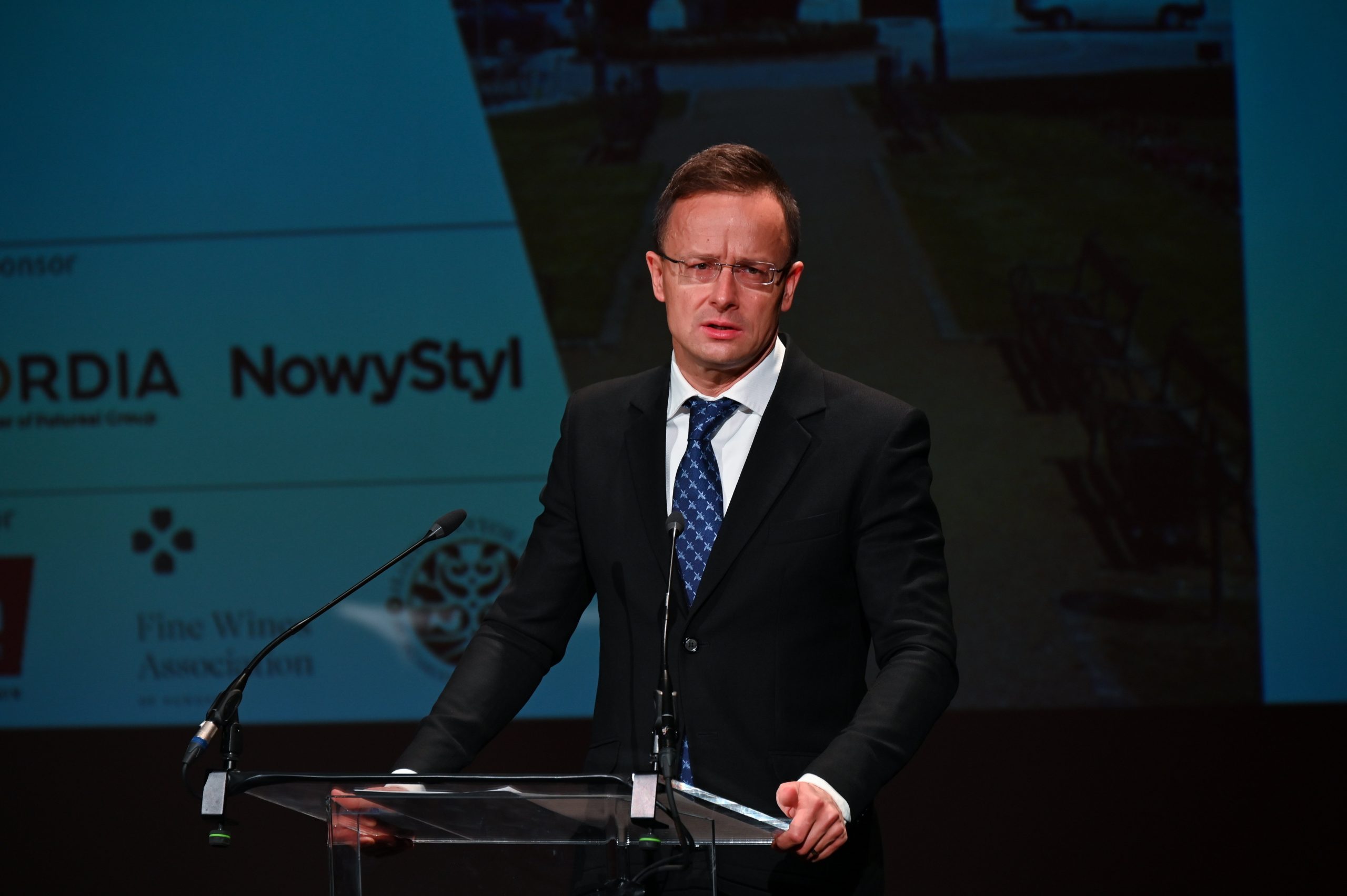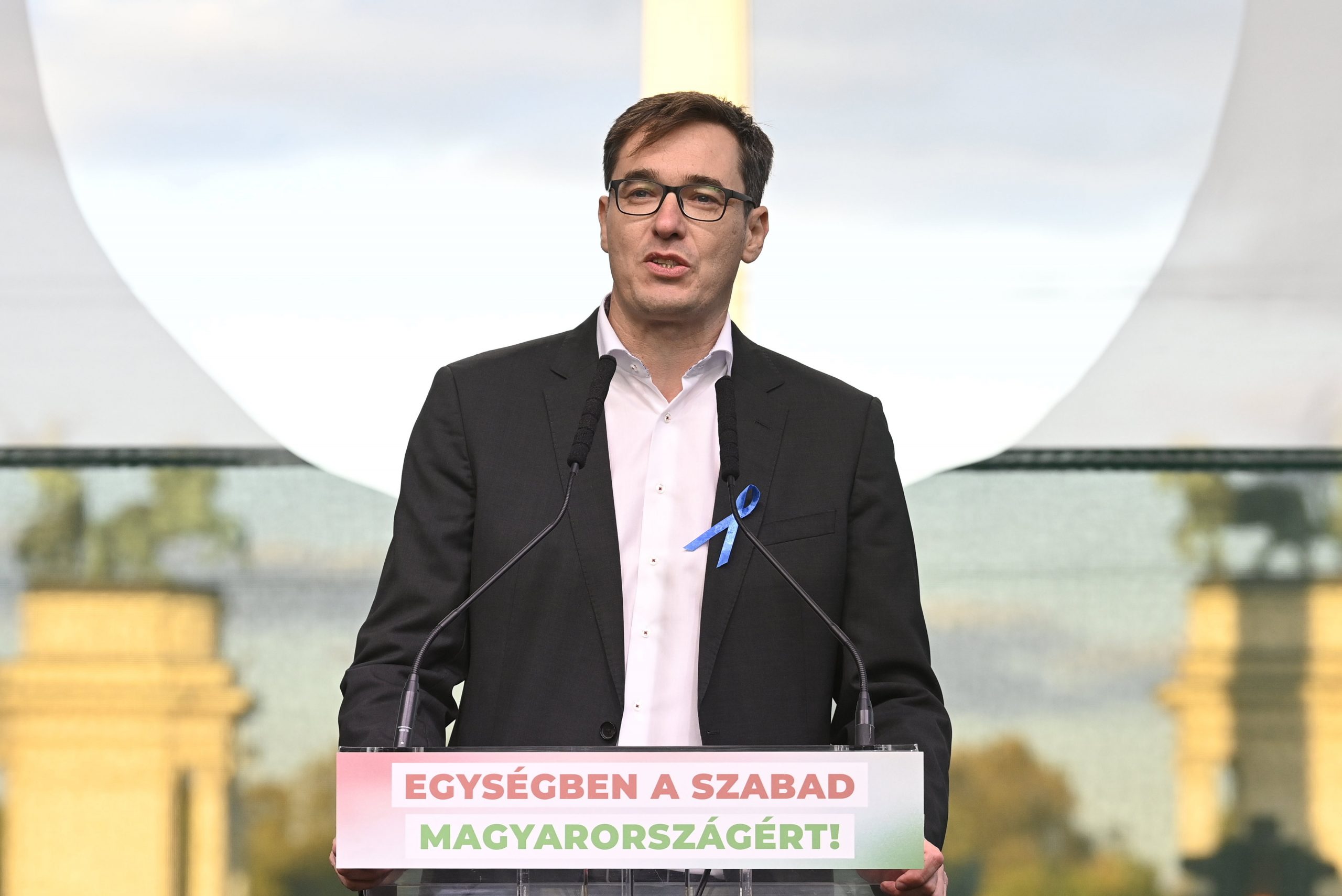
"The big and strong countries can afford to say and act differently. Small countries cannot afford that," the Hungarian Minister of Foreign Affairs and Trade said.Continue reading

Gergely Karácsony apologized to a subcommittee of the United States Congress for the actions of Prime Minister Viktor Orbán and asked them not to equate him with the entirety of Hungary, Telex reports. Taking part in an online hearing between the subcommittee and the leaders of Visegrád Group capitals, the Budapest Mayor and co-leader of leftist green party Párbeszéd criticized the Orbán government’s relationship with Russia and China as well as the government’s international behavior.
Speaking to a subcommittee of the United States Congress as one of the signatories of the Pact of Free Cities, Gergely Karácsony addressed the multiple concerns he has with Viktor Orbán’s government, arguing that Fidesz has significantly damaged the state of Hungarian democracy.
According to Gergely Karácsony, Viktor Orbán’s government directly serves the interests of both China and Russia while ignoring democratic values. He presented a five-minute speech in English, which he began by saying that “Viktor Orbán has built a hybrid regime between democracy and autocracy.” Media freedom is consistently reduced, and internationally, the government is increasingly turning towards China and Russia over the West.
As an example, he brought up the Budapest–Belgrade railway, built by Chinese companies, from Chinese loans, but paid for by Hungarian taxes. He also provided Paks II as an example of Hungary’s ties to Russia, noting that the nuclear power plant is being financed by Russia (through a loan to Hungary), and is serving Russian interests. In both cases, he emphasized, the details of the contracts are being kept away from the public.
The mayor also touched on the recently published controversial speech said by László Kövér to security officials back in 2020, in which he described the opposition as “Hungary’s greatest national security risk.” Karácsony considers such language to be a clear use of Vladimir Putin’s tactics. As another example, he brought up Hungary’s alleged use of the Pegasus spyware against journalists, businesspeople, and opposition politicians.
Karácsony said that the Hungarian government’s values do not reflect those of Hungarian society. This can be seen by the fact that in many Hungarian cities, Budapest included, opposition mayoral candidates were elected in 2019.
Speaking up again at the end of the meeting, this time in Hungarian, the Mayor spoke about Hungary’s exclusion from Joe Biden’s upcoming democracy summit. Karácsony considers it a typical argument of Orbán’s that “the EU cannot be present at the summit since Hungary is not there.”
The mayor considers it a danger to democracy that the Prime Minister is blocking the EU’s joint representation at the summit, for which he apologized. Karácsony emphasized that Orbán always addresses criticism against him as criticism against the entire Hungarian nation.
It’s unfortunate that I need to apologize for this. I’d like to ask you not to equate Orbán with Hungary.”
Finally, Karácsony called attention to the Western Balkans, where he says Hungary is aiding in the increasing of Chinese influence, which may need to be addressed with Balkan integration into the European Union.
The purpose of the hearing, organized by US Congressman Bill Keating, was to bolster support for local leaders in Central Europe working to “promote freedom and liberty.”
Mayor @bpkaracsonyg of Budapest is concerned by the decline of democracy in Hungary and in the wider world. He said this is a crisis of democracy and believes that urban centers have a responsibility to protect it, improve it, and drive us toward a better society
— Congressman Bill Keating (@USRepKeating) December 2, 2021
Keating cited the think tank Freedom House when bringing up that Hungary is the first EU member state to be assessed as partially free. While Poland, Czechia, and Slovakia are categorized more favorably, there is a general concern for democratic freedom in all V4 countries, the Democrat Politician explained.
The American side considers it unfortunate that the nations that were once the exemplary actors of democratic transition are now following a completely different, illiberal road which often even raises questions about fundamental rights.”
Aside from Karácsony, Bratislava’s Mayor Matúš Vallo, Prague’s Mayor Zdeněk Hřib, and Warsaw’s Mayor Rafał Trzaskowski also took part in the meeting.
Vallo assured the subcommittee that in Slovakia “cities will remain the islands of democracy” if the government fails to uphold the democratic system.
Hřib emphasized the relevance of climate change and human rights, describing the 21st century as the century of cities. The Prague mayor said China’s control over the market is often overestimated, noting that of the many Chinese investments brought up in Czechia, only a few came to fruition.
According to Trzaskowski, Poland’s ruling Law and Justice Party make the country a weak link in the transatlantic community. Such a weak link, he said, must be strengthened to ensure a proper response to Russia’s weaponization of energy politics.
Featured photo illustration by Zsolt Szigetváry/MTI